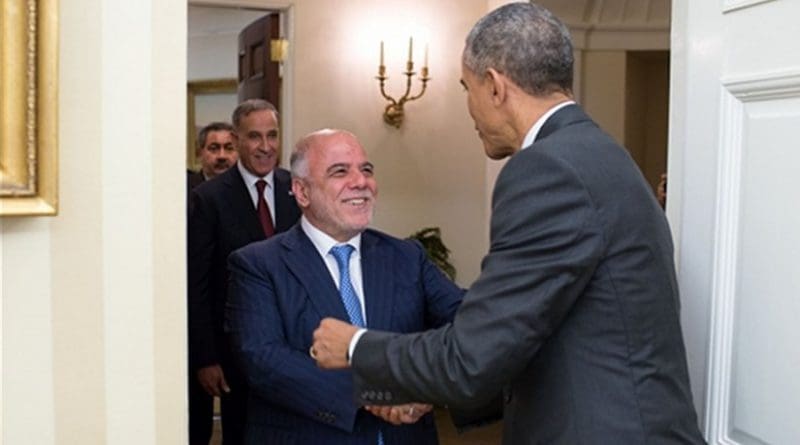Battle For Mosul And Challenge For Abadi Government – OpEd
By Arab News
By Abdulrahman Al-Rashed*
Mosul is the land, the second greatest city in Iraq, where the decisive battle is expected to take place. The world has been waiting for two years for this fight between the Iraqi forces and the international coalition on the one hand, and Daesh militants on the other. It cannot be limited to a clash between good and the evil even if it is clear that the terrorist organization named Daesh is the evil side and the acknowledged enemy.
However, even before the battle takes place, serious problems have surfaced over its management, namely about the role of each participating army and the course of the war. The fate of the city after the battle is over and the destiny of hundreds of thousands expected to be displaced are also matters of concern.
Generals from the US, Iraq, Iran, Turkey and other countries, are rushing to Mosul and its vicinity. All of them consider this as the decisive battle to defeat Daesh that has embarrassed world powers with its swift spread and control over one-third of the territories of two large countries like Iraq and Syria. The group has been committing unprecedented genocide of ethnic groups including even the Arabs and Sunni Kurds who are opposed to them.
Everyone wants to have the honor of defeating Daesh. There are high expectations as they are all confident that they will finally liberate Mosul, even if there are no estimates about the duration of the war and its human cost, especially of civilians used by Daesh as human shields.
If civilians survive Daesh, they stand a chance of falling into the grip of the Popular Mobilization Militias, some of which are sectarian terrorist outfits just like Daesh.
Moreover, another problem has been added to these set of challenges with the Turkish military settled on the outskirts of the besieged city. The Iraqi government has asked Ankara to withdraw its forces, estimated to be less than 2,000 soldiers, and called it illegal as they do not have the authorization of the sovereign state.
Turkish President Recep Tayyip Erdogan gave a clear answer to this when he told Jamal Khashoggi, in an interview on Rotana channel, that he would not allow the deportation of Sunni Iraqi Arabs and Turkmen. This was a clear accusation toward the Iraqi government. He said that he does not trust Iraqi government’s battle management and its dealings with the Sunni Turkmen and Arab components.
The Turkish position of intervening in Mosul has raised many questions. This is especially because Ankara has failed to intervene earlier to protect people of the besieged Syrian city of Aleppo and the neighboring Turkish border but is now eager to intervene on the other side of the region.
The Iraqi government has failed many times in the past to protect its Sunni citizens in battles in Anbar province, the latest being in Fallujah and Ramadi. The Popular Mobilization Militias went into these battles and attacked civilians in the two Sunni cities after asking them to evacuate the region.
Nineveh and its capital Mosul are Iraq’s most diversified provinces in terms of ethnicities (Kurds, Turkmen and Arabs) and sects (Sunnis, Shiites and Yazidis). We haven’t heard yet of any guarantee from the Iraqi government regarding the safety of the people, except for verbal pledges that are no longer trusted. How can Iraqi Prime Minister Haidar Al-Abadi’s government deal with this difficult, embarrassing and dangerous situation?
In my opinion, the prime minister can go to Ankara and negotiate with the Turkish government. He should accept the Turkish troops within the forces involved in the battle.
This way he will avoid confrontation that might arise as a result of the battle to liberate Mosul, when every force will be trying to take control. If an Iraqi-Turkish agreement is indeed reached before the battle with Daesh, it would be reassuring for the Iraqi Turkmen, as well as the Sunni Arabs.
For the first time after the toppling of Saddam’s regime, the marginalized and oppressed groups will feel safe. These groups have led the revolution against Baghdad. Legitimizing the Turkish forces’ presence in Iraq will serve the Abadi government in managing the country and not just the province of Nineveh. It will save him from embarrassment.
*Abdulrahman Al-Rashed is a veteran and internationally acclaimed columnist. He is the former general manager of Al Arabiya news channel and ex-editor in chief of Asharq Al-Awsat.

